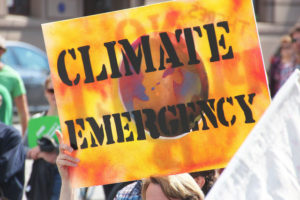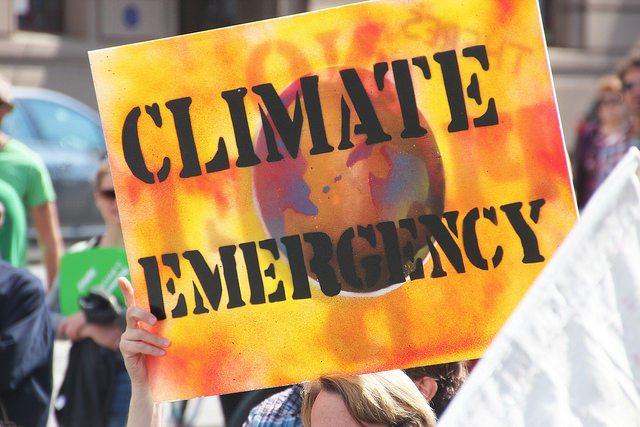>> The problem of income inequality in the United States yesterday just got larger with the stroke of President Trump’s pen. The administration’s decision to withdraw from the Paris Climate Agreement will further advance the disparities created by an ailing environment. >>Numerous scholars and industry experts have found that low income members of society are hit hardest by the effects of climate change.
The problem of income inequality in the United States yesterday just got larger with the stroke of President Trump’s pen. The administration’s decision to withdraw from the Paris Climate Agreement will further advance the disparities created by an ailing environment. >>Numerous scholars and industry experts have found that low income members of society are hit hardest by the effects of climate change.
The giant shift we all felt yesterday when the United States joined Syria and Nicaragua in opposing the agreement (194 other nations signed it by the way) – underscores the decision made by our editorial staff recently.
This month we’re focusing on income inequality in North Carolina. When our Board and executive team began planning our editorial coverage this month, we quickly realized one month is not enough time to tackle this issue. There’s evidence of it everywhere around our state. Women get paid eighty cents for every dollar a man earns – and that’s not projected to change until 2060. Most of us will be retired or with our Maker by then. Beyond that, the disparity is greater for people of color. >>According to the Institute for Women’s Policy Research , hispanic women will have to wait until 2248 and black women will wait until 2124 for equal pay.
Taking a deeper dive reveals that the issue of income inequality is a textbook example of a Catch-22. Marginalized groups are paid less, they can’t pursue educational opportunities, and then they’re paid even less. Add to this reality that in many cases it’s women saddled with caregiver rolls that prevent us from pursuing advancements in our career.
Beyond gender, there are disparities across our culture. According to Inequality.org, the average U-S income is about $33,000 for the bottom 90-percent of the population. Compare that to the top point-one percent who earn more than six-million each year. While I’m sure many of those millionaires have valuable skillsets and have worked hard – they’re not 184 times more talented than their peers. Putting this another way, the top-one percent of America’s income earners have more than doubled their share of the nation’s income since the middle of the 20th century.
For the next two months we’ll be focusing on this problem and what policies are needed to rectify this problem. Spoiler alert – the experts we’re consulting tell us it comes down to access to education, affordable child care, an examination of tax policies, access to health care and passage of the Equal Rights Amendment, among others.
And we want to hear from you. How is income inequality playing a role in your life? Do you experience it? Do you know others impacted by it?
We’re all living a busy life. If we’re financially successful, it’s easy to forget those who aren’t. Worse yet, it’s easy to assume that if we’re making it – others can too. Some of us fall somewhere in the middle. But I can promise you – those struggling, largely as a result of our policies that support income inequality, don’t want to be where they are. This summer let’s work together to understand how we can create a level playing field for us all. When we support each other, we all win.

There are no comments
Add yours